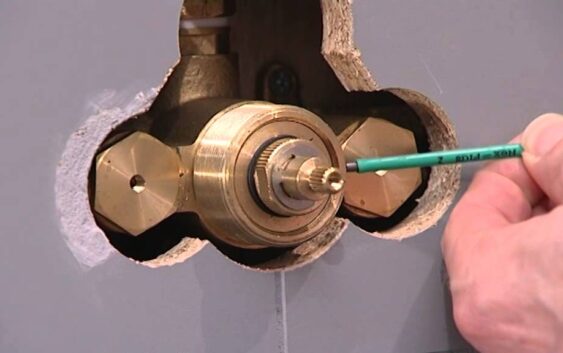- Slot Machines: Spinning Luck into Excitement
- The Fascinating World of Slot Games: History, Evolution, and Modern Trends
- Slot Games: From Mechanical Reels to Digital Entertainment Powerhouses
- Slot Games: History, Evolution, and the Thrill of Chance
- The Fascinating World of Slot Games: History, Evolution, and Modern Appeal
Mixing Valves Repair Tips

Mixing Valves Repair: Hot water heaters have a tendency to fail when you need them the most. That being said if you make sure to check and maintain your water heater especially before the winter sets in you can avoid many of these issues. Some of the most common hot water heater problems include:
- Little or no hot water
- Rust in the water
- The smell of rotten eggs
- A rumbling or a popping noise
- A leak around the base of your heater
- A whining sound
Preparing for the job
Before performing any Mixing Valves Repair or troubleshooting your hot water heater do the following:
- Turn the gas or electricity off to the heater.
- Turn off the water valve.
- Drain all the water by unscrewing the valve located below your water heater.
Problem no. 1: No hot water
Possible causes for no hot water include:
- A bad gas pilot
- A faulty gas control valve
- A spoilt thermocouple
Possible solutions to this problem:
- See if the gas pilot’s flame is burning. If it’s not burning then it means that the gas is not flowing as it should.
- Reposition, tighten or replace your thermocouple.
- Replace the control valve.
Problem no. 2: Not enough hot water
Main causes of this problem include:
- The unit is small hence not being able to fulfill demand adequately
- A damaged or broken dip tube which is allowing hot and cold water to mix
- A bad installation which has crossed both the hot and cold pipes
Possible ways to repair this problem:
- You should make sure that your water heater is not overtaxed. You should have a 40 gallon water heater if the demand requires 30 gallons because 75% of its capacity needs to be hot water.
- Open up the inlet pipe nipple and take out the dip tube. If it looks in bad shape then replace it.
- Check to see if the connection has been crossed by turning off all the water supply. Open the hot water tap if you still see water flowing then you have a crossed connection. The most common problem is the hot water line connected to the cold water line like a dishwasher, shower valves or a faucet.
- Check if the burner is burning properly. If you have a gas heater the flame needs to be bright blue with the tip having a slight yellow tinge.
Problem no. 3: Rust colored water
Some of the root causes of this issue are:
- Corrosion within the glass lined tank
- The sacrificial anode may be failing. The anode fails because the rod dissolves slowly which prevents the tank from rusting. Once it fails completely rust then takes over.
Possible Repair
Simply replace the anode rode with a new magnesium rod. These can be purchased from a plumbing supply store.
Problem no. 4: The smell of rotten eggs
Bacteria in your hot water tank feeds off the sediments which creates hydrogen gas which gets mix in with the decay of your sacrificial anode.
Possible ways to remedy the issue:
- Completely flush the water heater followed by adding 2 pints or around 3% of a concentrated peroxide solution to around 40 gallons of water. Also run some of this solution into your water lines.
- The solution should sit in your tank and pipes for around 2 hours. The solution is not toxic and so you don’t have to rinse it.
- If you continue to have problems then replace the anode with a zinc one.
If the problem still persists you may need to change the water heater and get a plastic line one.
